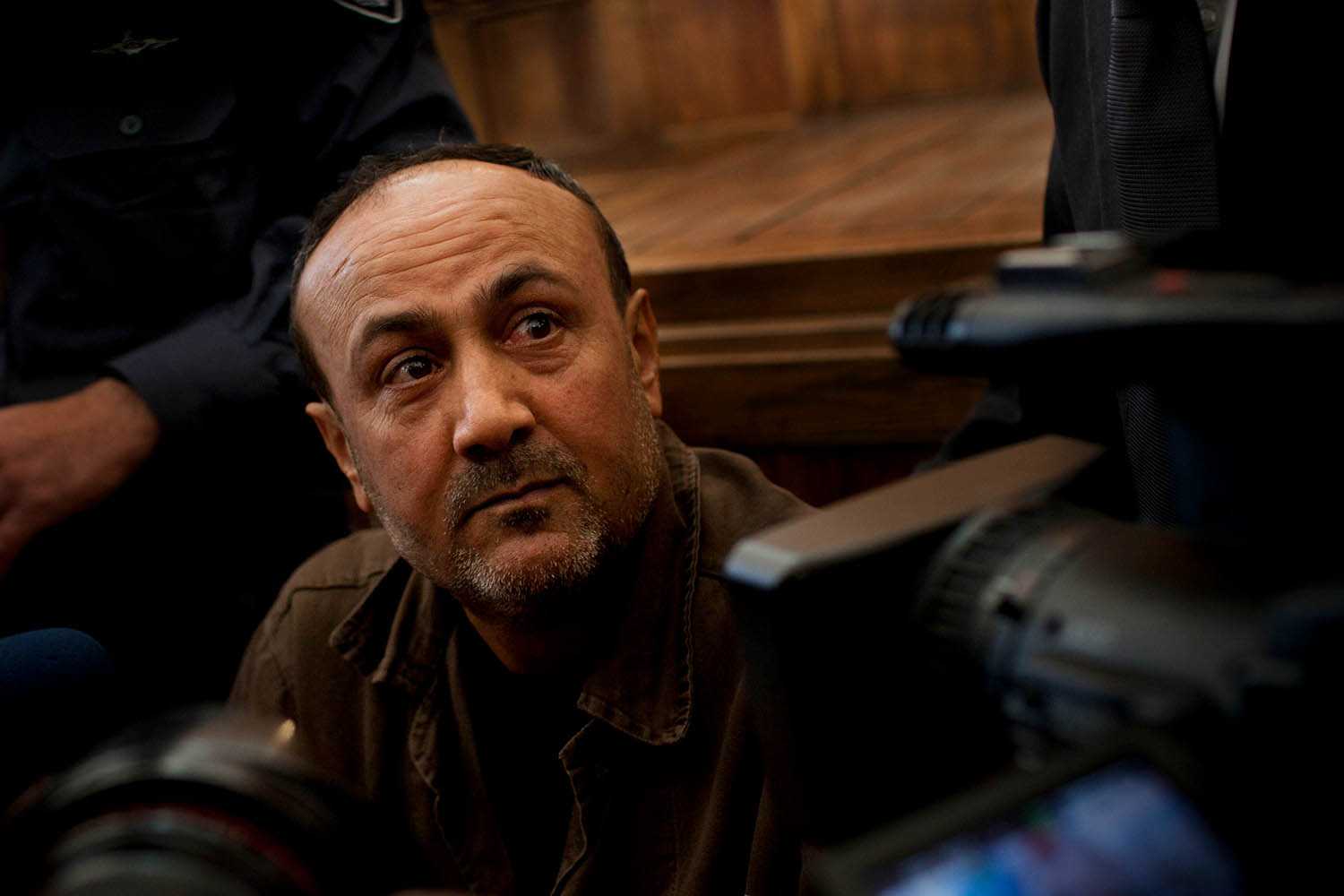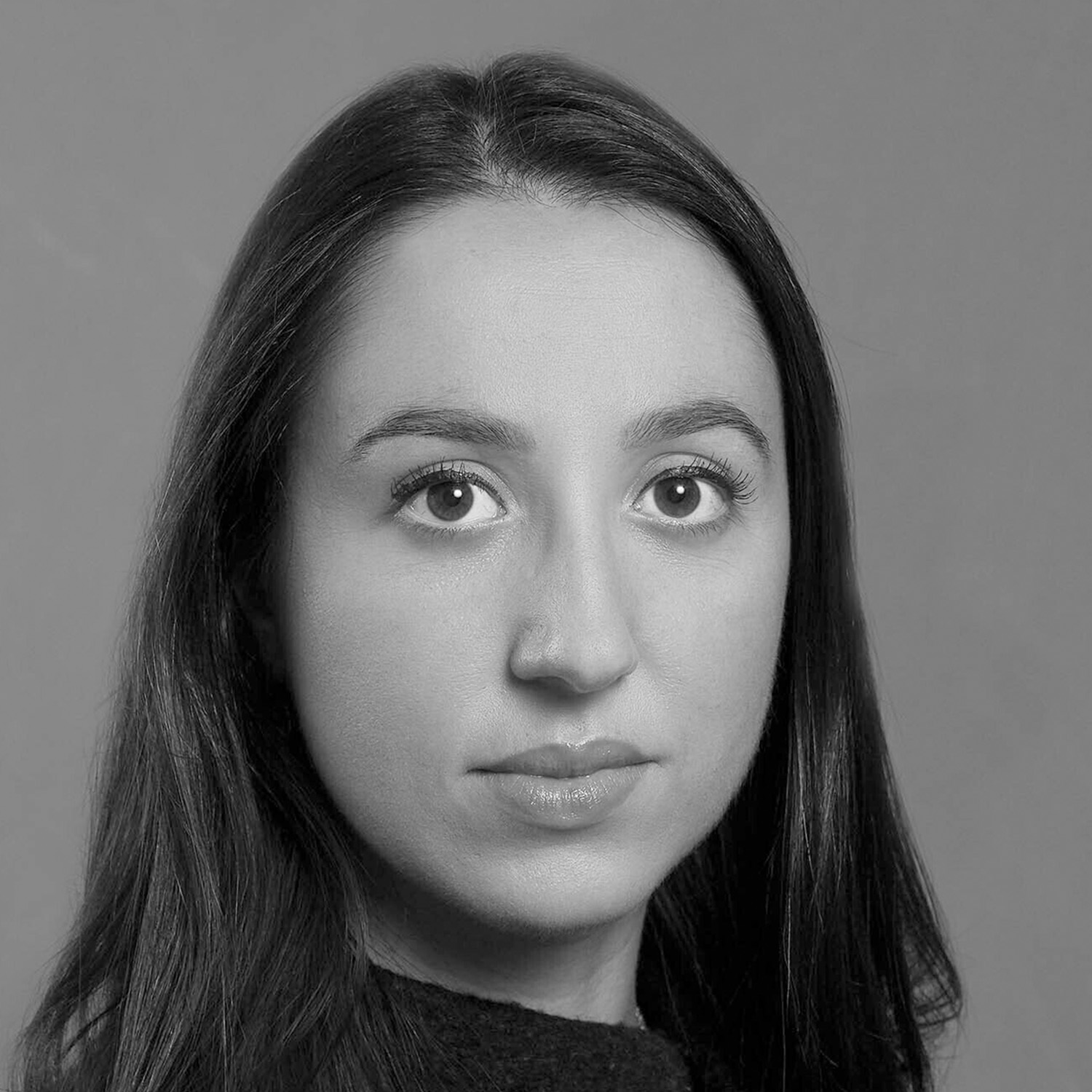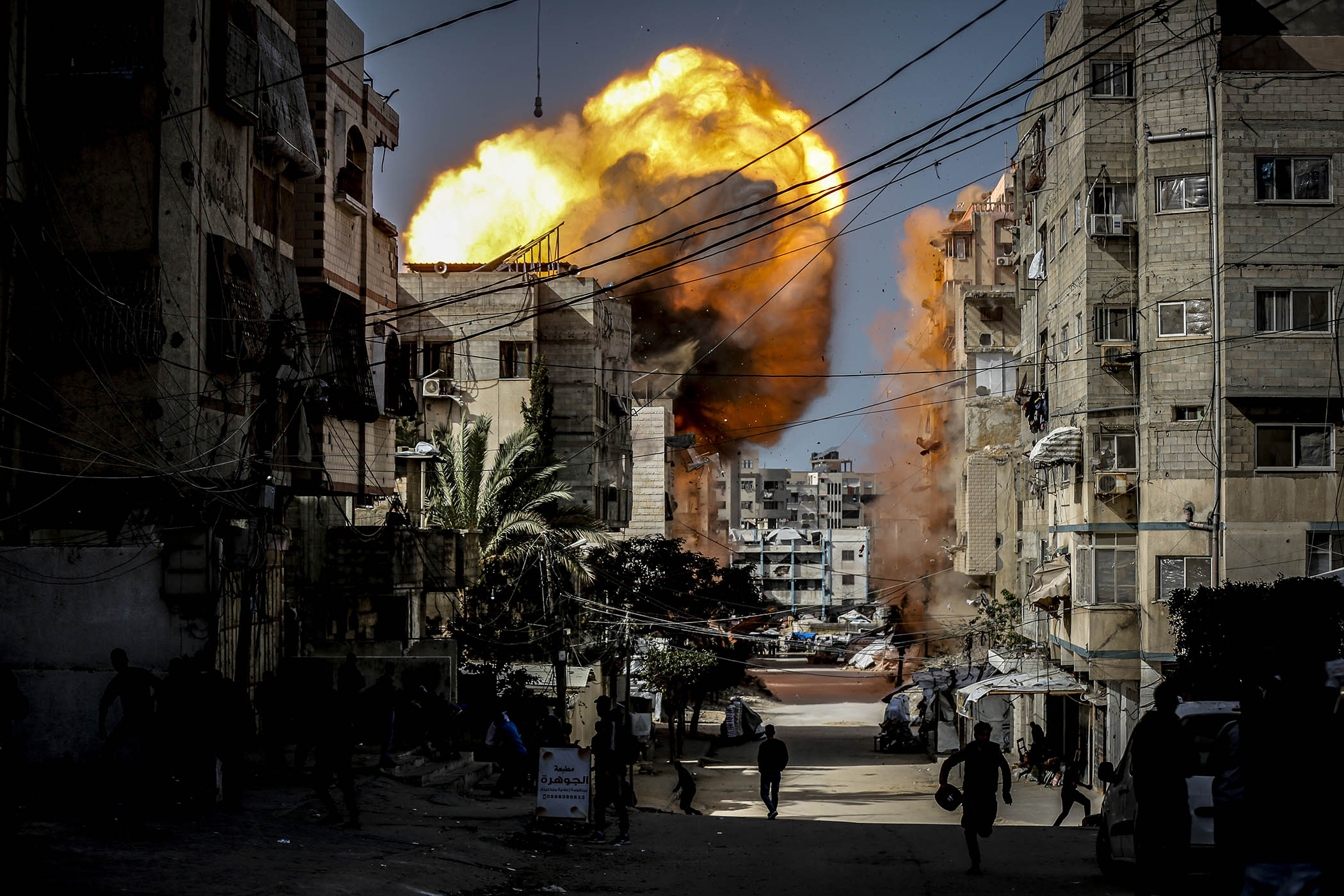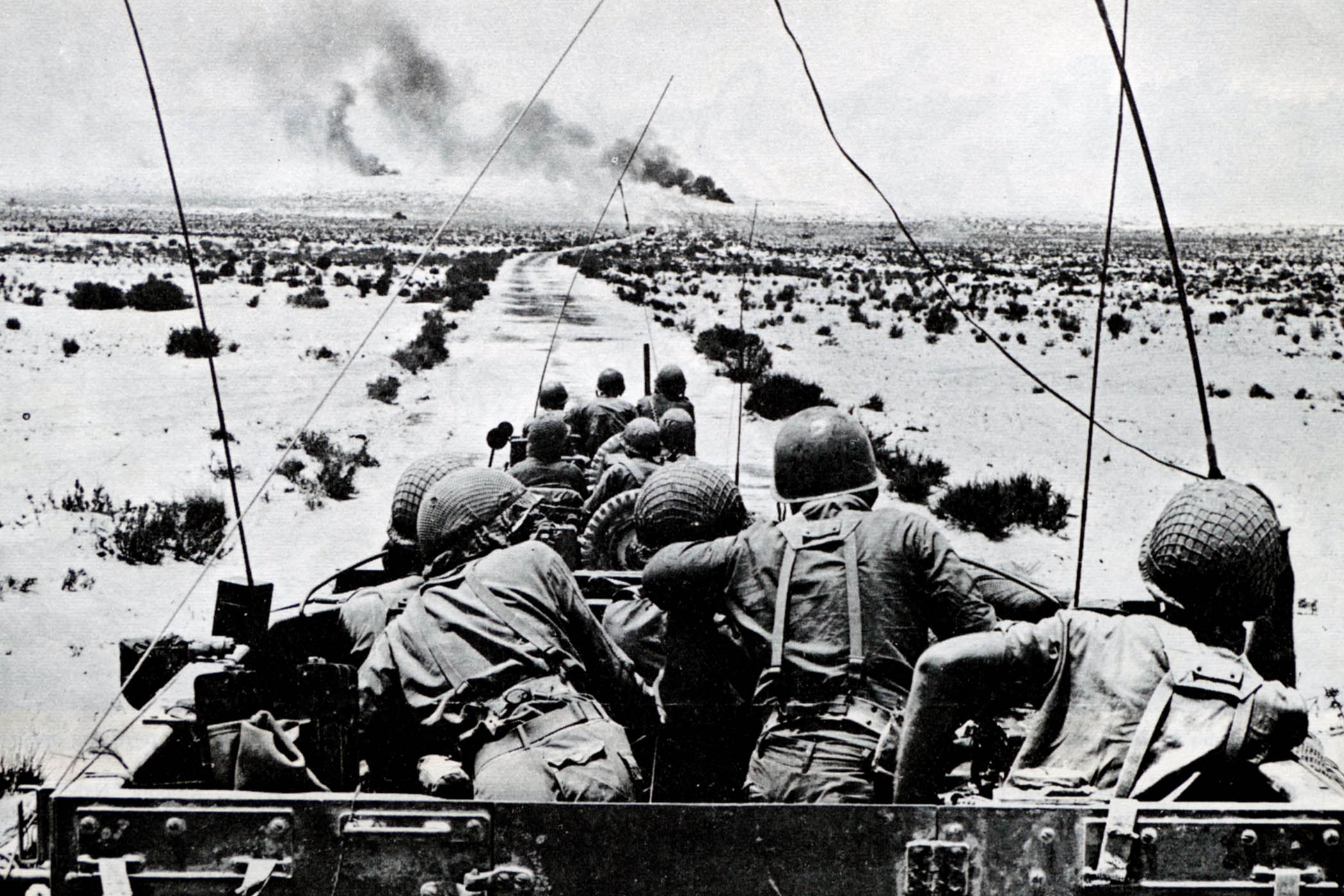As Britain, along with several other countries including France, Canada and Australia, prepares to recognise Palestinian statehood at a UN conference this week, it raises the question: who will speak for and lead that state?
The ruling politicians are unlikely contenders: Hamas is designated a terrorist group and has seen its leadership in Gaza and abroad devastated by Israel over the last two years, while the 89-year-old president of the Palestinian Authority in the West Bank, Mahmoud Abbas, is deeply unpopular, with a legacy of corruption and cooperation with the Israeli occupation.
But there is one man whose popularity is enduring among Palestinians: Marwan Barghouti. His name has become synonymous with the struggle for statehood and liberation. He has been in prison for the past 23 years but his image is stencilled on walls, printed on T-shirts and painted on huge billboards across the West Bank – sporting a cheeky grin below a bushy black moustache, with handcuffed hands held defiantly above his head.
Barghouti was a senior politician in the Palestinian nationalist party Fatah, but he is known for his unique approach. Having taught himself Hebrew while incarcerated for a period in his 20s, he was a firm believer in dialogue and is said to have met every Israeli politician who would talk with him.
After originally backing Fatah’s support for the Oslo peace process in the early 1990s, it became clear to him that the Israelis were not going to follow through with the promises that should have moved them towards a two-state solution. In 2000, the second intifada erupted – a violent uprising against Israel – with Barghouti at the helm.
In 2002, he was convicted and sentenced to life imprisonment for allegedly directing attacks that killed five Israelis. International observers say the trial was illegitimate and predetermined, and was used to send a message that Palestinian resistance in any form would be punished.
The man who oversaw the trial, then justice minister Meir Sheetrit, was among the many Israelis with whom Barghouti had developed a personal relationship. While he believes the verdict was sound, Sheetrit does not think Barghouti belongs behind bars any more.
“If it were up to me I would release him because I still believe that his original intentions are unchanged,” Sheetrit said in a 2024 interview for The Observer podcast The Slow Newscast: Palestine’s Forgotten Leader. “I think he still seriously believes in peace.”
Related articles:
Despite his imprisonment, Barghouti, who is now 66, has remained an influential political figure. In 2006, he persuaded representatives of each Palestinian political faction inside Hadarim maximum security prison in Israel, including Hamas and Islamic Jihad, to sign a declaration stating they would accept a Palestinian state along the 1967 borders.
That meant giving up more than 75% of their historical land, with many seeing it as a historic, albeit tacit, acceptance of an Israeli state on the remaining territory.
Newsletters
Choose the newsletters you want to receive
View more
For information about how The Observer protects your data, read our Privacy Policy
But Israel’s prime minister, Benjamin Netanyahu, said it was meaningless – making a show of screwing it up and throwing it in a wastepaper basket on national television.
Barghouti even tried to run for president from prison in 2021, when the first Palestinian elections since 2006 were slated to be held. He was the clear frontrunner before Abbas called them off, citing Israel’s refusal to allow Palestinians in East Jerusalem to vote.
According to Israeli human rights organisations, more than 40% of Palestinian men have spent time in Israeli jails and about 20% of them will have been held, sometimes for years, without trial. Since the start of the Gaza war, conditions in Israeli prisons have sharply deteriorated, with prisoners and lawyers testifying that torture, abuse and food deprivation have become routine. According to the UN, 75 Palestinian prisoners have died in Israeli custody during this period.
Since 7 October 2023, when Hamas launched its surprise attack on Israel, Barghouti has been held in solitary confinement and, according to his lawyer, badly beaten by prison guards several times. His lawyer is the only person able to visit him after Israel banned family visits for all Palestinian “security” prisoners following the Hamas attack.
Which is why it was such a shock when, last month, he appeared in a short video released by the Israeli government in which far-right minister Itamar Ben-Gvir, who oversees Israel’s prison system, was recorded inside a cell castigating Barghouti, telling him that anyone who messes with Israel will be obliterated.
In the video, Barghouti is extremely thin and pale. He attempts to speak, but is cut off – his voice has not been heard in public for decades.
“I was filled with rage and anger,” said his youngest son, Arab Barghouti, speaking to The Observer during a recent visit to London. “It was a classic bully move and intended to humiliate, which is something that we got used to as Palestinians at every checkpoint, in every interaction.”
After the incident, Arab said the family derived comfort from all the messages they received from people from across the Palestinian territories – including dozens of phone calls from people in Gaza – and the rest of the world, offering the family sympathy and support.
“It shows how important he still is to the Palestinian people,” said Arab. But he acknowledges that a Palestinian state will require more than one man to make it a reality. Nelson Mandela – who Barghouti is often compared to – was not acting alone.
The South African leader had an entire united political system behind him, activists and international actors – all of which pressured his counterpart FW de Klerk to go to the negotiating table to end apartheid.
That cohesive international movement is not there yet for the Palestinians, Arab admitted, but this week’s acknowledgment of statehood is a step in the right direction.
“If you asked me maybe a year ago, I would have said it’s just symbolic,” he said. “But since the Israelis have become more public about their intentions of ending the dream of establishing a Palestinian state, it’s a big statement.
“But If it doesn’t come with Israeli sanctions, it won’t have any real effect on the ground.”
It is difficult to know how much news of the death and destruction carried out since 7 October has made its way into the prison where Barghouti resides. There are rumours that guards have posted photographs of devastated Palestine landscapes around the prison corridors. Is it possible that the brutality of the last two years could have turned Barghouti away from dialogue and compromise? Arab does not think so.
“I haven't talked to him about this for a long time but I don’t think he’s changed his position. My father always said that only a fool would choose violence if we can get our rights through political solutions,” Arab said.
Barghouti is not a pacifist, and he has often said that any Israeli in illegally occupied territory is a legitimate target – although he has always said his fight is with the occupation and not with ordinary Israelis. The Israeli government sees Barghouti as a man with blood on his hands. “Everyone is obsessed with Israel’s right to defend itself, but no one talks about our right to defend ourselves,” Arab said.
Arab visits London several times a year to campaign for his father’s release. Ministers in Keir Starmer’s government have been willing to meet him and have been largely sympathetic, he said, but so far they have not been willing to lobby the Israelis on his behalf.
Arab said it disappointing that the UK has not increased the pressure on Israel to go to the negotiating table.
“They keep talking about a two-state solution. OK, well you have the most popular leader still in prison. He is a unifying figure, someone respected across Palestine and Israel. Someone who could bring democracy into Palestinian politics. So you have to ask for his release – it’s very simple.”
Photograph by Bernat Armangue/ AP




